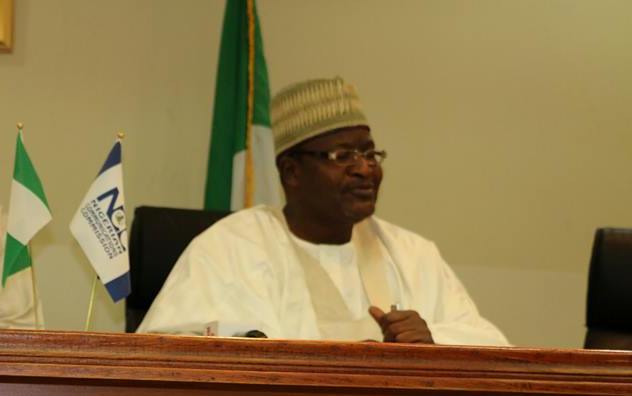THE Federal Government has commenced the process of licensing the remaining five broadband infrastructure companies (InfraCos) in line with is target to accelerated ubiquitous high-speed Internet penetration in the nation’s telecoms market. This is as government gave assurance that its target broadband penetration of 30 per cent by 2018 was still achievable, having attained 20 per cent mobile broadband penetration, according to United Nations’ Broadband Commission for Sustainable Development report.
The Nigerian Communication Commission (NCC), disclosed that the licensing was in pursuance of its mandate to implement the Open Access model for next-generation optic fibre broadband network in the country.
According to the document, the Commission said the Phase 2 of the licensing would see licensee emerging each for North East, North-West, South-South, South- East and South-West Zones. The NCC, had, last year, selected MainOne Consortium and IHS Consortium as InfraCos for Lagos and North Central zones respectively, after due consultations and evaluations in the first phase. “The Nigerian Communication Commission (NCC) on behalf of the Federal Government of Nigeria announces its intention to commence Phase 2 license of InfraCos for North-East, North- West, South-South, South-West and South East zones.
“The InfraCos will deploy metropolitan fibre infrastructure within its assigned territory on an open access, nondiscriminatory, price regulated basis. “The Open Access Model has been examined and found to be an appropriate model for Optic Fibre backbone infrastructure in Nigeria to bridge the current broadband gap and deliver fast, reliable broadband services to households and businesses.
“It is envisaged that this initiative will address the challenges of congested transmission network and also mitigate the challenges arising from infrastructure sharing and Rights of Way issues. “In this project, the Federal Government shall provide financial support in the form of subsidy, which shall be competitively determined to facilitate rollout obligations.”
Director, Public Affairs, NCC, Mr. Tony Ojobo, explained that the Request for Proposal (RFP) document detailing the commercial principles, key licensing conditions and technical specifications “shall be advertised and made available shortly.” The Executive Vice Chairman, Prof. Umar Danbatta, had recently said that broadband is the flagship of the Commission’s 8-point agenda, which it unveiled last February. “In many ways, some of the other items of the agenda are either dependent on the success of our broadband, or are interwoven with it.
Therefore, we are giving a very huge attention to the issue of broadband. “Broadband is already identified globally, as a tool for accelerated socio-economic development,” he said, stressing that the Commission’s agenda aligns with the importance accorded to broadband across the world. According to Danbatta, the provision of the National Broadband Plan that has set a target of 30 per cent penetration from 2013-2018 also accentuates NCC’s emphasis on broadband penetration.
He said: “The Commission recognises its prime responsibility in the actualisation of the national broadband plan.” In this connection, Danbatta explained that the Commission was committing resources and efforts towards deployment of broadband services across the country with some significant impacts.
“The active mobile broadband penetration, released by the Broadband Commission for Sustainable Development showed that Nigeria has reached a penetration of 20.95 per cent.
Equally, on the percentage of Internet penetration, the country has reached a milestone of 47.44 per cent second to South Africa in the continent,” he said.

 Football7 days ago
Football7 days ago
 Health & Fitness1 day ago
Health & Fitness1 day ago
 Featured5 days ago
Featured5 days ago
 Comments and Issues7 days ago
Comments and Issues7 days ago
 Education6 days ago
Education6 days ago
 Business6 days ago
Business6 days ago
 Crime6 days ago
Crime6 days ago
 Business5 days ago
Business5 days ago

